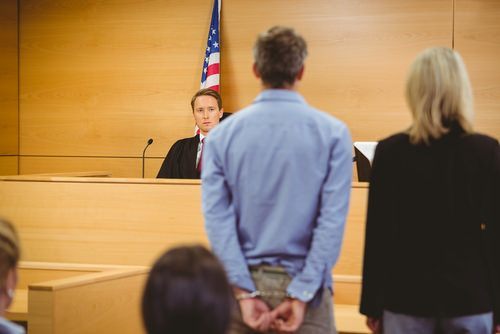The majority of citizens in most countries don’t know much about the criminal process and criminal laws in California until or unless they or their beloved one come across any of these crimes. The same is true for people living in California and Los Angeles. People usually start to seek information after committing a crime accidentally. Even some people who previously have gone through a bad legal incident cannot understand the criminal process.
If you found yourself in the event of any criminal case in California, then you are in the right place. Benefits of knowledge about essential steps of the criminal process in California are
- You can develop a strategy that can be successful in getting favorable results.
- You can maximize the chances of winning
- You can reduce charges significantly
- Possibility of termination of the entire case completely
Table of Contents
Guidelines to follow about the criminal process in California.
The Criminal Justice System in California is somewhat complicated because it consists of complex rules and procedures to follow. Police can arrest someone assuming that he has committed a crime because California has the “Stop and Frisk” law. This law states that
- Police can arrest and detain someone without any warrant in a public place provided he has sufficient suspicion that he is involved in illegal activity.
- Police can conduct a basic pat-down search to look for weapons provided they believe that you are armed.
Police in California don’t file criminal charges, and it is not true that the alleged person has the authority to press charges on anyone. The prosecuting attorney can decide whether charges should be filed or not after getting reports and evidence from police. Prosecuting attorneys also decide about the type of charges to be filed.
Hire an Expert Lawyer
Suppose you live in any California county and unfortunately committed a crime or someone charged you that you physically abused him and wanted to defend yourself. In that case, you should be experienced in all rules and processes. On the other hand, to get a favorable outcome, hire the services of an experienced Los Angeles criminal lawyer who is an expert on all codes/rules/common defenses and legal procedure.
Your lawyer can chalk out an effective strategy after an evaluation of your situation. He can file a pre-trial Motion to make possible the best legal defense for you. He can use “Penal code 995 Motion to dismiss” for the criminal case to be dismissed.
This code is used in a felony case after the preliminary hearing. Your criminal lawyer can use the option of another motion called “Serna Motion” to dismiss a felony case because of speedy trial violation, provided you have been denied a right of speedy trial. Bail reduction Motion is another option in California.
Initial Report and Investigation
The investigation starts with an initial report. This report is provided by a witness to a police officer or by calling rescue 911 for help. Police will respond to the information after receiving it. In case of emergency, police will immediately get to the reporter or suspect. In non-emergency cases, the relevant agency will investigate thoroughly before any arrest of an alleged person. An eyewitness can be asked to identify a criminal in a police lineup.
Investigation continues whether the accused is arrested or bailed after arrest.
This is a lengthy process and can take months and sometimes years. Long investigations can be attributed to the complexities of crime, or it is also possible that police may be busy in some other important cases. The investigation stage of the criminal case is very critical because it provides an opportunity for prefilling intervention. It is possible to drop a case before filing formal charges, provided you have an influential defense position.
Filing the Criminal charges
The case was transferred to the persecutor agency for filing after completion of investigation by relevant agencies. The detective makes feasibility for requested criminal charges. The district attorney or city attorney determines whether the case should proceed to a formal criminal charge or not. This is done before the first court date, but sometimes more time is needed. The court may inform the defendant that no case is filed during the first court date appearance.
Arraignment
The first formal court date is called an arraignment, provided the case is filled. During this arraignment, the defendant submits a not guilty plea. He also receives police reports, pictures regarding charges and witness statements, etc. Legal terminology for this is “Discovery.” A defendant can also apply increased or decreased bail at the bail hearing. Judges set the bail, and the prosecutor requests the bail according to the bail schedule in California.
“Own recognized release” is granted for minor criminal charges and non-violent misdemeanor. A court can produce protective orders and ask the defendant not to contact the alleged victim when the case is pending. This is true in domestic violence cases.
The physical presence of those defendants is not necessary who have acquired the services of a private attorney in most misdemeanor cases. Still, physical appearance is mandatory for defendants in felony cases.
It is advisable to choose a professional criminal lawyer before arraignment because some critical decisions can have some positive or negative impacts on your case.
Early disposition or preliminary hearing setting (pre-trial conferences)
This type of court proceeding provides a chance for both parties to offer a solution to the case without litigating the issue at trial.
The preliminary hearing is entitled to the defendant in felony cases during which the government tells the court that sufficient evidence is present to put the matter on a jury trial. During the preliminary hearing, the prosecutor shows the judge evidence of guilt. This type of hearing is not for misdemeanor defendants. There can be many of these pre-trial conferences during which outstanding discovery issues are discussed.
Preliminary hearing
Preliminary hearings share many features with a jury trial. Both parties submit witness testimony and legal arguments. Burden of proof is less in these hearings, and the government has to prove that enough evidence exists to prove probable cause. The preliminary hearing is conducted only in felony cases, not in misdemeanor cases.
Your attorney completes a crucial task at this stage. He extracts pieces of evidence and elicits the answer from a witness of the prosecutor. This process is called “cross-examination.” Your criminal lawyer, in cross-examination, attacks the credibility of the witness.
Trials
If negotiations remain unsuccessful, then the case is preceded by a jury trial. The panel of 12 citizens evaluates evidence presented by the prosecutor and defense, and they will inform the jury that the defendant has proven guilty. If there is proven guilty, then the defendant is convicted otherwise acquitted.
Sentencing
The defendant will face sentencing if
- Following a guilty verdict at jury trial
- Plea of guilty
- No contest according to the negotiated plea agreement
In case of a plea deal, the terms of the sentence are clear to the defendant, and the judge only approves the terms. The judge has more rights of imposing the decision of their will after a jury verdict.
There is the possibility that conviction may not result in imprisonment of a defendant in many misdemeanor cases of non-violent charges, and defendants are placed on misdemeanor probation. The court imposes formal felony probation for the defendant having non-violent charges in felony cases.
A sentencing regime is present in California consisting of a common term, midterm, and high term. The judge selects between these three terms for each offense of conviction according to the panel code.
For example, if a crime is punishable as 2-3-5, the judge will select a 2-, 3-, or 5-years State imprisonment sentence after weighing the aggravating factors in the case.
In Misdemeanor cases, a sentence can be one year imprisonment in county jail but 16 months or even death in first-degree murder cases of felonies.
California criminal procedure allows defendants to get a new trial even if a jury has been found guilty of a criminal offense.
Post-conviction appearances
In many cases of both felonies and misdemeanors, the defendant has been granted probation, affirmative obligation to complete are also available for defendants. These obligations can be
- Community service
- Counseling
- Anger management Payment of fines/fee
- Another reasonable condition judge imposes
The court monitors these obligations to be completed by the defendant by setting progress dates. Defendants have the option to present themselves on these dates or choose to retain an attorney provided they are not in strict compliance.
The defendant can be sentenced additional sentences when a judge may find them in violation of not following terms and conditions of probation. A defendant has the right to a formal hearing if involved in the violation of probation.
Conclusion
After the above article, it is clear that the criminal process in California is complicated from start to finish. It is time-consuming because it can take months or even years from the initial report to the final disposition. The process at every stage is essential and critical, so effective legal presentation is required to get favorable results.
Legal help from a criminal lawyer can be helpful because they are professional and know all rules and procedures thoroughly. However, they can be costly but helpful. It is recommended that if you or your beloved are in criminal trouble, then get support from a professional attorney. Hiring the best criminal lawyer is vital because all attorneys are not equal in capabilities. So, evaluate critically before choosing one for you.






